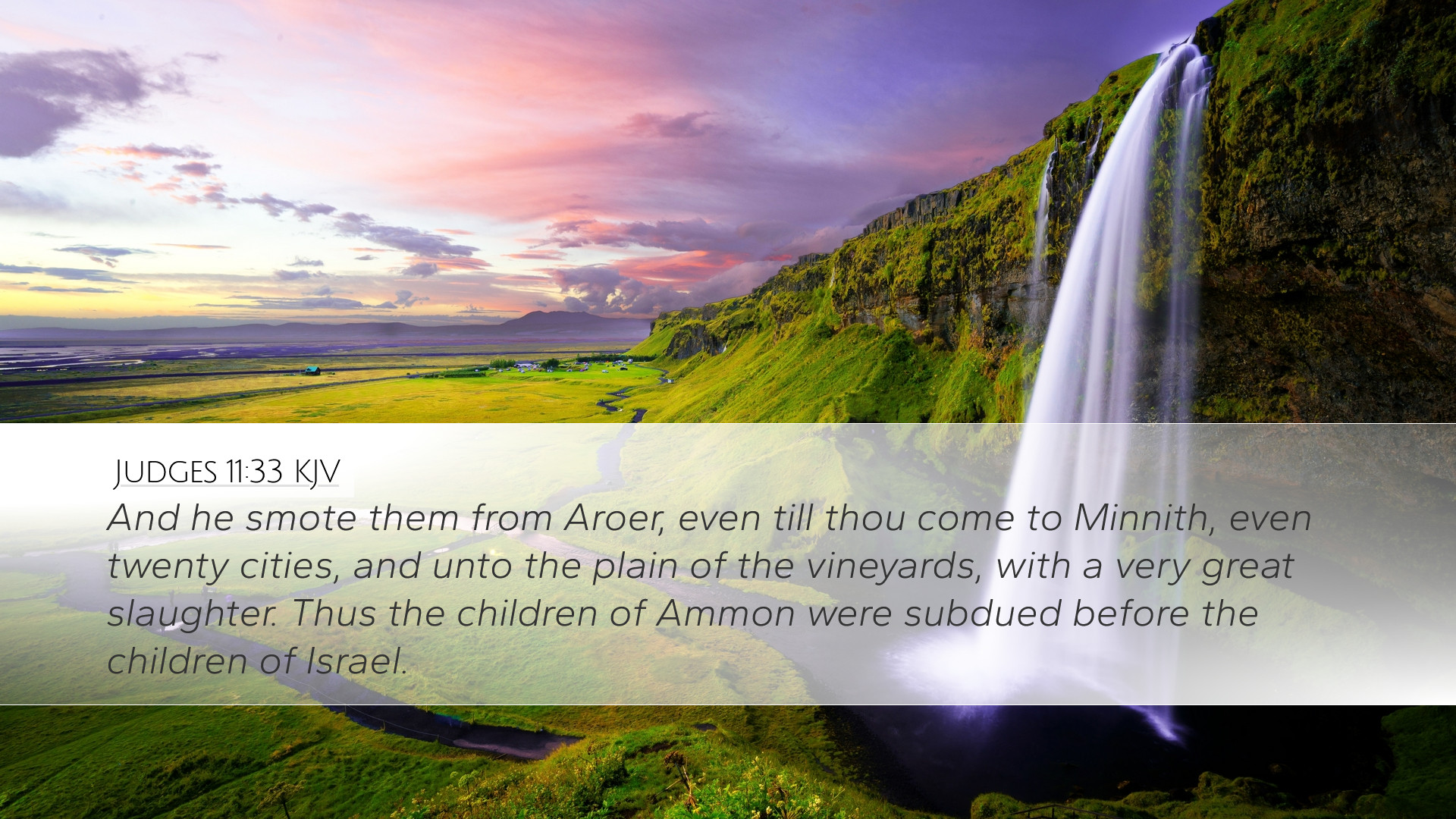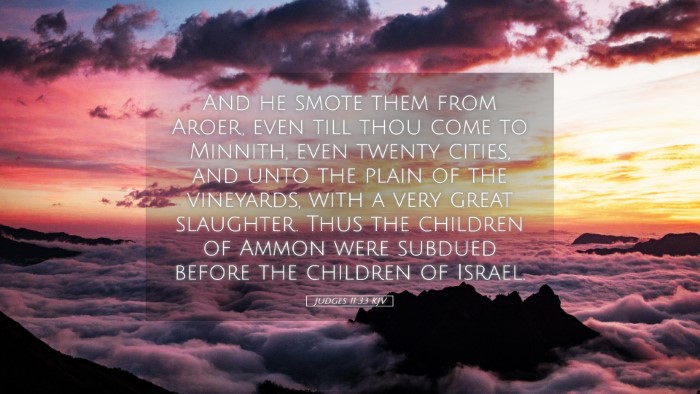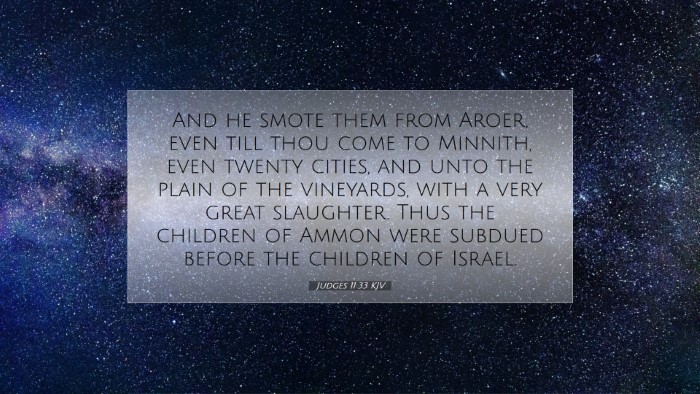Bible Commentary on Judges 11:33
This passage describes a poignant moment in the narrative of Jephthah, one of the judges of Israel, as he faces the repercussions of his vow. Judges 11:33 states:
"And he struck them from Aroer, even till thou come to Minnith, even twenty cities, and unto the plain of the vineyards, a very great slaughter. And the children of Ammon were subdued before the children of Israel."
Contextual Background
The context of Judges 11:33 is vital for understanding the depth of Jephthah's actions and their consequences. Jephthah was a Gileadite, noted for his military prowess and leadership amid Israel's conflict with the Ammonites. His story is a complex narrative involving themes of faith, leadership, and the moral complexities of fulfilling one’s vows.
Historical Setting
This period in Israel's history was marked by cycles of apostasy, oppression, and deliverance. The people of Israel continually found themselves in distress due to their disobedience to God, which invited foreign oppression. Jephthah's rise as a leader can be seen as both a divine appointment and a response to the people’s pleas for deliverance.
The Significance of the Victory
Judges 11:33 details the extensive military campaign led by Jephthah against the Ammonites. The reference to "twenty cities" reflects the scale of the conflict and indicates a significant military strike.
Military Strategy and Divine Assistance
The text implies strategic military success influenced by God's providence. Matthew Henry notes that Jephthah's victories were orchestrated by divine intervention, underscoring the idea that success in battle is ultimately in the Lord’s hands. Thus, this passage can serve as a reminder of the importance of seeking God’s will and assistance in endeavors.
Commentary Insights
-
Matthew Henry: Henry emphasizes that Jephthah's success was no mere happenstance but a result of God's favor toward Israel amidst their plight. He points out that the geographical descriptions provide insight into the vast territory the Ammonites had occupied.
-
Albert Barnes: Barnes adds that the victory symbolizes the fierce repulsion of Israel’s enemies, highlighting the cosmic battle between the forces of oppression and God’s chosen people. He suggests that this moment reflects God’s desire to protect and deliver His people.
-
Adam Clarke: Clarke takes a scholarly perspective, noting the significance of the mention of specific cities and regions. He suggests that such details serve to authenticate the historical narrative and illuminate God’s plan in establishing Israel’s boundaries and ensuring their safety.
Moral and Theological Reflections
The passage invites readers to reflect on the complexities of leadership, the weight of vows made to God, and the moral implications of one’s decisions. Jephthah’s military success poses questions about the relationship between divine providence and human responsibility.
The Weight of Vows
Jephthah is known for his tragic vow concerning his daughter's sacrifice, a theme central to the narrative. His victory, while seemingly a reason for celebration, is tainted by the personal cost of fulfilling a rash promise. This complexity serves as a theological exploration of the nature of vows before God, the significance of discernment in decision-making, and the understanding of divine justice.
God's Sovereignty and Human Agency
Jephthah’s actions and subsequent victory also serve as a commentary on God’s sovereignty in human affairs. While Jephthah was the instrument of deliverance for Israel, the consequences of his vows raise profound questions about God’s role in our decisions and the ramifications of our faithfulness to Him.
Conclusion
Judges 11:33 is a rich narrative passage that encapsulates the intricacies of divine intervention in human affairs, the significance of leadership, and the solemnity of vows. For pastors, students, theologians, and Bible scholars, this text invites deep contemplation on the character of God, the responsibility of leadership, and the moral imperatives facing individuals in positions of authority.


